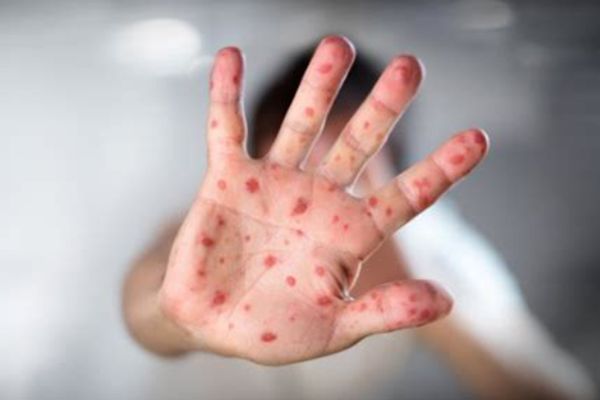
Air pollution is making it harder for fruit flies to mate because females cannot easily recognise a male’s scent, a study has found.
Female fruit flies select their mates for reproduction through the scent of their pheromones, but ozone pollution can disrupt the male’s ability to emit their characteristic odour, researchers have found. This means contaminated air can pose a threat to how successfully fruit flies and other insects reproduce, and could lead to population decline.
“Everyone knows that we are facing insect decline, and so far the reason was pesticide use and habitat loss. But we think that we should also consider oxygen pollutants,” said Markus Knaden, a researcher of evolutionary neuroethology at the Max Planck Institute and lead author of the study published in the journal Nature Communications.
This study builds on research into how insects perceive flower odours differently when exposed to elevated levels of ozone. Knaden’s team tested nine different species of Drosophila fruit flies by exposing half the males from each species to ambient air, and half to an atmosphere with ozone levels at 100 parts per billion. Average industrial ozone levels are at roughly 40 parts per billion, but regions like India, China or Mexico experience magnitudes as high as 210 parts per billion.
The scientists found the males exposed to higher ozone levels started emitting fewer pheromones. As a result, they had trouble attracting female partners. “When we expose male flies to ozone, then suddenly it took them much longer to convince the female to mate,” said Knaden.
What’s more, emitting pheromones also helps males fend off other males from trying to reproduce with them. But being exposed to ozone led to males smelling less like males, and a rise in the number of attempts to mate between males, Knaden said.
“In the lab, it doesn’t matter whether the male has to wait one or two minutes longer to mate, or whether the male accidentally courts another male,” says Knaden. “But in the field there is a lot of selection pressure and the flies have to be efficient, so they have to give everything to find the female as soon as possible, copulate and fertilise her eggs before they’re killed by a predator.”
Insect pheromones are based on chains of molecules latched together by two carbon molecules, but ozone has the ability to break up these carbon bonds and dissolve the pheromone strings. The effect in nature is likely to be amplified, Knaden said, as ozone is just one of many pollutants in the environment with the ability to do this.
“I think it’s really one of these things where, yeah, we should have thought of this earlier,” said Jean-Christophe Billeter, a professor at the University of Groningen who studies fruit fly pheromones but was not involved in this work. “A very, very common environmental pollutant can have a very specific effect on reproduction.”
Fieldwork is necessary to learn more, Billeter said, as well as whether ozone pollution also makes it harder for flies to distinguish between members of their species and closely related ones with which they are unable to mate. What fruit flies are experiencing could be happening for several other insects too, Billeter added, including moths, ants, or pollinators like bees, who not only mate but also communicate and coordinate their colonies and nests with unique pheromone signatures.







